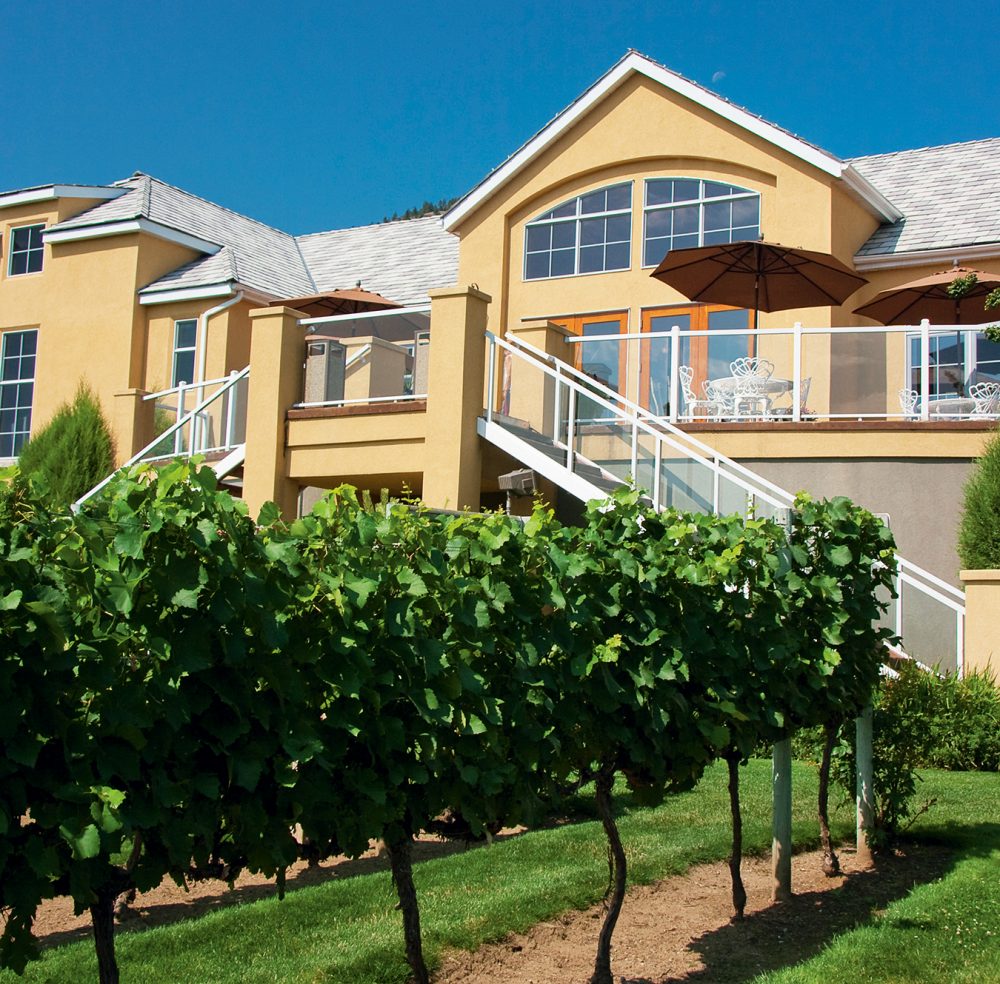Sandra Oldfield, winemaker and co-owner of Tinhorn Creek Vineyards, sits in her new office under the recently opened Miradoro restaurant. She is looking out at the stunning view from this perch in the South Okanagan’s Golden Mile Bench, reflecting on the recently completed addition to the Tinhorn Creek property. A slow and steady approach has built Tinhorn Creek into a benchmark 35,000-case winery with a number of fantastic amenities. And while the new restaurant is certainly a fantastic addition to the Okanagan Valley, there are other gradual changes that are seeing Tinhorn Creek become one of the most environmentally sensitive wineries in Canada. Oldfield is ready to talk compost.
For years, Tinhorn Creek has been very conscious of their place in the unique and delicate South Okanagan desert landscape. They continue to evolve with developments aimed at minimizing their impact on the surrounding environment. On Oldfield’s desk are the recent results of their greenhouse gas emissions reduction program, with initial figures showing an impressive 17 per cent decline. While not as romantic as a new wine release or the announcement of their concert series lineup, there is a buzz in the air about the winery, as all involved seem keen to not only make delicious wine, but do it in a sustainable way.
In a business climate where green-washing is commonplace, Tinhorn is quietly working outside of the spotlight. Their philosophy is that sustainable practices are the right thing to do as a business, rather than just another way to sell a few extra bottles of wine. “I don’t like the term sustainable,” Oldfield says. “I’m still trying to figure out what it exactly means. There is an endless amount of things you can do to be sustainable but one of them has to be staying in business.” Since 1996, when the first Tinhorn Creek winery and retail facility opened, they have grown gradually and conscientiously and put out vintages that are consistently amongst the best value wines in British Columbia.
As for sustainability, yes, a number of techniques are indeed being implemented. “It is carbon, water, packaging, hiring more local labour and keeping as much of the money in the local area,” says Oldfield. Tinhorn Creek is a pioneer in many ways, including becoming Canada’s first carbon-neutral winery, using biodiesel fuels for tractors and other vineyard operations, employing less chemicals in the vineyard and just being more efficient in general.
And then there’s the all-important compost, which seems to keep coming up in conversation around the winery. Oldfield and viticulturist Andrew Moon are palpably excited to be able to take the pressed grape skins, prunings and other food waste, and return them to the vineyard to provide vital nutrition for the vines.
As far as understanding what sustainable really means, it seems that Sandra Oldfield and the team are getting close, perhaps even helping to invent it. But you can be certain with Tinhorn Creek that it will be a thoughtful, deliberate process. While we sip on the new rosé, dining on the deck of Miradoro restaurant, Oldfield and her team are busy in their offices below, working hard to make sure of it.
Photo: Chris Mason Stearns.









